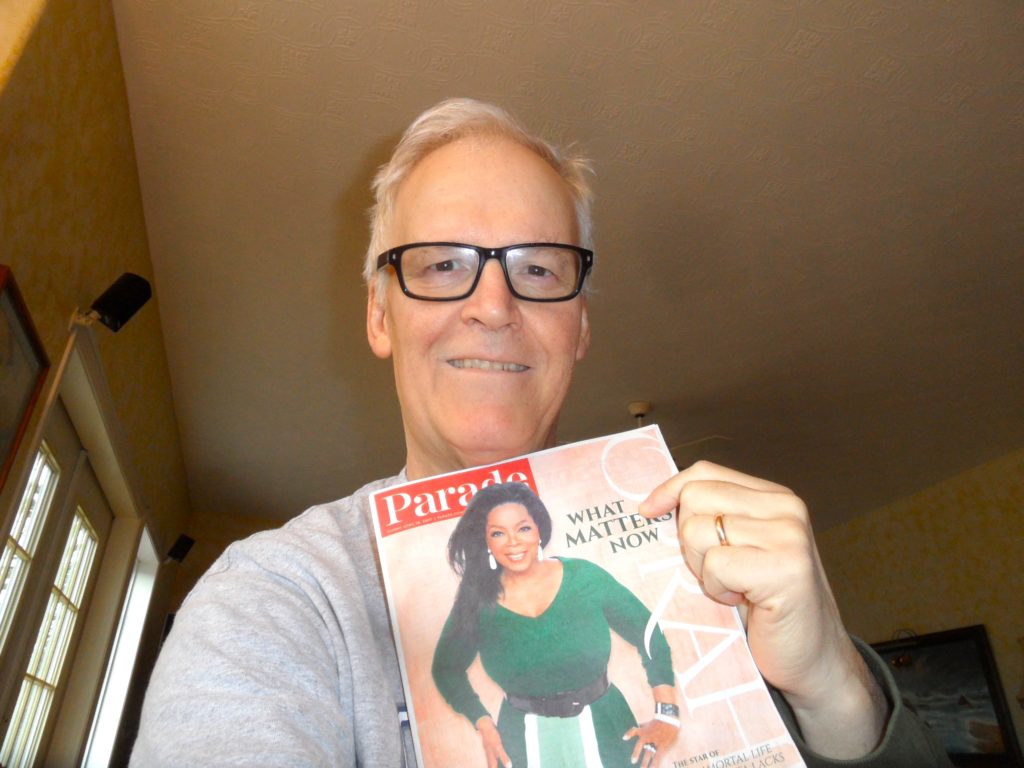
Vice.com published a piece with a funny headline in 2012:
Cancer Memoirs Are Breaking Out Like the Plague
Now it’s 2017 and I’m writing a cancer memoir.
Still funny?
When journalists write about their illnesses they are congratulated for breaking the last taboo, which says we should shut the hell up about disease and death and not mention such unpleasantness in polite company. But seriously, how many times does a taboo have to be broken before we stop calling it a taboo? Because writing about one’s own malady, especially if it’s cancer, is actually pretty commonplace these days. It can even make you a celebrity, or at least make your cancer a celebrity.
The cancer that jumped up in my face was HPV16 tongue cancer caused by oral sex with women carrying the virus.
Ooooo, the taboo.
Is that taboo enough? Commonplace enough?
A man had the same business I did. His wife said he thought of it as just a part of his life, and he’s moving on.
She asked why I’m not moving on. Her name is Pamela Tom of hpvandme.org.
My answer? I’m a blogger with a Millennial generation audience. Don’t ask me why.
If one of my readers decides to change their behavior to safe sex, or sends a link to someone they think ought to change, then I’m happy.
More than a few writers and bloggers have conveyed their cancer message, but to who?
In Britain, cancer commentary took off in the late 1990s. In June 1997 , diagnosed with terminal breast cancer, started her popular death column in the Observer. She filed six columns, all pretty graphic, some upsetting, before her death in September 1997. Then came the inevitable book, Before I Say Goodbye, which contained not only the columns but also a host of personal emails exchanged between Picardie and friends, for those greedy readers who wanted even more info about Ms. Picardie’s death throes.
This is a story for reality television. No one can write it better than the person on the inside.
But only if they’re a writer from the beginning.
Learning how to write while learning how to live with cancer treatment and cancer might be too much.
Journalist (and husband of Nigella Lawson) wrote what he openly called a “cancer column” for the London Times in the late 1990s and early 2000s while he was suffering from throat cancer. His columns won him a prestigious What the Papers Say award and were turned into both a book, C: Because Cowards Get Cancer Too, and a play, A Lump in My Throat, which was a hit among the more morbid sections of the theater-going chattering classes. Diamond achieved his highest level of journalistic fame after stopping writing about the external world and instead writing about his internal decay, as a dryly noted: “It was a horrible irony that the illness that eventually ended [his] life was also, professionally, the making of him.”
As if a great story wouldn’t make anyone.
What’s F. Scott Fitzgerald’s great story?
The Great Gatsby made him great. And probably cursed him, too.
Kurt Cobain said he didn’t see himself playing ‘Smells Like Teen Spirit’ when he was fifty, but it made him great.
Tony Bennett was asked how he felt about ‘Left My Heart In San Francisco.’ He said he loved it and felt honored anyone still wants to hear it every time he sings.
Fame is frequently bestowed on those who treat the public to details about their disease. Last year a Daily Telegraph journalist won Britain’s “” for her articles about battling lung cancer. The success that can spring from writing about one’s own cancer was summed up in a desperately sad headline in the in March 2007: “Cancer. Despair. And Now, a Blog.” That story was about Alicia Parlette, a journalist who blogged her demise from skin cancer. In the US, cancer memoirs have followed depression memoirs (remember ?) and anorexia diaries (hello ) as the latest offering to that strange section of the public that can’t seem to get enough of other people’s suffering.
A cancer memoir about a cancer caused by oral sex with women and how squeamish it still is to talk about ‘those’ squamous cells?
Sounds like a best seller in the making, except when I lived in NYC during the swinging 70’s I couldn’t even find Studio 54, let alone get in.
Swinging I wasn’t. So how did I land P16?
In such circumstances, when sickness sells, it was only a matter of time before we started seeing fake cancer columns, written by charlatans seeking a shortcut onto the op-ed pages and into Joe Public’s heart. In 1999 a Kentucky-based columnist called Kim Stacy started a series of columns about her battle with “terminal brain cancer.” “Try to picture a world without dreams, without wishes, without hope,” she wrote, yanking painfully on the reader’s heartstrings. But she didn’t have brain cancer. She made it up, to disguise the fact that she was actually suffering from AIDS, she said. But she didn’t have AIDS either. She made that up too. She was a serial disease fantasist, clearly out to make a buck from the weird cultural fascination with sickness and sorrow. At a time when you can be treated as heroic simply for having suffered, it must be tempting to pretend to be sick.
Since HPV16 cancer is so tilted toward white men in early middle age, and me at sixty two, the question comes up: “Why does it hit so many white men?”
Another man in the group said, “Maybe other races don’t travel below the equator as much?”
A woman in the group broke in with, “I can say that’s not always the case.”
Another women said, “From what I know, my husband could never get HPV16 tongue cancer.”
The thing that motors cancer journalism, which makes it increasingly acceptable, even good, for hacks to tell all about the very darkest moments of their lives, is our craven culture of voyeurism. Nothing can remain private anymore, especially the bad stuff: In our Oprah era of constant sharing, to refuse to publicly discuss your failings, fuck-ups, ailments, and even imminent death is taken as a sign of sociopathy. “Let it out,” we’re told. “Don’t hold anything back.”
Another approach? Focus on the unsung people of cancer and don’t let them hold back.
Do it from the inside and let it rip.
Shortly before his death last year, when he was quite legitimately refusing to tell the world’s slobbering media what was wrong with him, Steve Jobs was attacked by Slate for being “unusually—and, frankly, irresponsibly—cagey about his medical status.” Yeah, how dare you not tell me—and tell investors!—what your sickness is, and even better, show me your sickness by giving me a graphic description of what bits of you are falling off. It is a sick culture that is so obsessed with sickness. A cure for cancer is a long way off, but let’s work on what we can for now, and find a cure for the cancer column.
If I read him right, what Mr. Brendan O’Neill editor of Spiked is trying to say is let’s find a cure for cancer and the bad cancer column.
The bad cancer column, bad cancer memoir, and fake cancer story all need to go away and make room for the next wave.



[…] my book in progress, LICKING CANCER, A Complete Response, I will address such conversations the way we address dirty rugs. I’ll be giving it a good […]